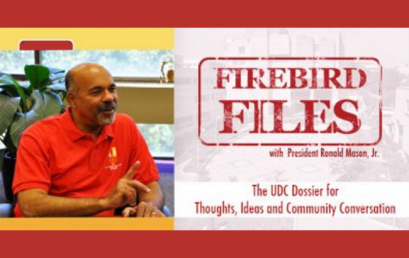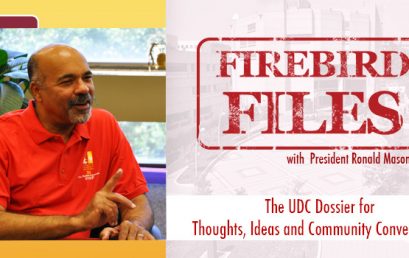Part VI – By Any Means Necessary
I don’t cry on the outside often, and when I do, it is not for very long. However, I was brought to tears recently by a film on Netflix titled “13th.” My tears were not ones of sadness. Rather, they were caused by a swell of guilt over the evil we allow to dwell in our midst.
The film is about the 13th Amendment to the United States Constitution. Contrary to popular perception, that amendment did not eliminate slavery. In fact, it allows people to be enslaved as long as they are criminals. That exception to freedom was deemed necessary to rebuild the economy of the South after the Civil War. Slaves had not only been free labor, they also had been worth more as “property” than all of the money deposited in all of the banks in the nation. Power brokers were unwilling to pay the price that would have been required to remove them from the wealth production system. Continue Reading Part VI – By Any Means Necessary
America in Black and White Part V – The Dream Peddler
My hope was that there would not need to be a Part V. But America has just elected a Commander-in-Chief who, by his own words, is a racist, misogynist, and xenophobe. Our next president is someone who believes that women who have abortions should be punished, who believes that Americans of Mexican descent cannot be impartial judges, who belittles the disabled, who believes in trickle- down economics, who believes global warming is a hoax, and who would make America “great again” by bombing the living daylights out of anybody he perceives to be in our way. Continue Reading America in Black and White Part V – The Dream Peddler
Racism on the Table
The issue of race in America has been getting a lot of attention lately. That is a good thing. From athletes kneeling during the National Anthem to Black Lives Matter protests against the killing of unarmed Black men, people are trying to understand what’s happening and why. A local influential organization, The Washington Regional Association of Grantmakers (WRAG), has been engaged in a series of workshops with the leaders of local foundations to raise awareness of the components and complexities of institutional racism. The Series is called “Putting Racism on the Table.” You can check it all out at www.puttingracismonthetable.org. Continue Reading Racism on the Table
America in Black and White – Part IV – Nature and Nature’s God
In this series, “America in Black and White,” Part IV is the most difficult to write. Not because I don’t know what to say, but because there is little to say that you don’t already know.
In Plato’s Allegory of the Cave, prisoners who were chained for years in a cave believed that shadows they saw on a wall were reality. One eventually was freed and led out into the light. After a while, he returned and tried to describe to those who remained chained the truth of their situation, but they condemned him, preferring the comfort of the shadows. Continue Reading America in Black and White – Part IV – Nature and Nature’s God
Wells Fargo
I have always been fascinated by the term “white collar crime.” It makes it seem as if stealing lots of money is not as bad as stealing a small amount. It rarely results in punishment that fits the crime. Yet the small-time thief is often thrown under the jail, like the guy who stole $20 from a parking meter and was sentenced to 10 years.
Contrast that with the fallout from the recently exposed Wells Fargo Bank scam, in which two million credit cards and customer accounts were opened using phony signatures and email addresses. More than 5,000 low-level employees got fired for trying to meet impossible sales targets set by their supervisors. The CEO said it was all their fault, as if thousands of bank workers making $12 an hour woke up one morning and decided to defraud their customers. Not one manager was terminated. And even if the CEO eventually loses his job, he will reportedly walk away with company stock that grew to be worth more than $200 million because of the scam. That’s on top of the $19.3 million salary he was paid last year. Continue Reading Wells Fargo
Vote to Make Black Lives Matter!
Sunday’s Washington Post interviewed two African American activists about political strategies for black communities: Erika Totten, 33, a co-creator of the District Black Lives Matter group; and Courtland Cox, 75, head of the SNCC Legacy Project, and veteran of violent voter registration campaigns in the South during the sixties.
Because the two-party system is “corrupt,” Totten said, “Thinking about voting the lesser of two evils, there are many people that feel I’m just not going to vote for evil at all.” She favored, instead, working “on the ground level” to change her community.
Cox, on the other hand, quoted Martin Luther King, Jr. to caution that “all that is necessary for evil to triumph is for good people to do nothing.” Continue Reading Vote to Make Black Lives Matter!
America in Black and White Part III – Aspirational America
When leaders of the British colonies grew weary of being oppressed by their motherland, they called upon the “Laws of Nature and of Nature’s God,” and vowed to revolt. In 1776, they wrote a Declaration of Independence. In that document they laid out principles for a new kind of nation, one of enlightened self-interest. For the first time in history, a nation would be founded and based on the self-evident truths that “all men are created equal, that they are endowed by their Creator with certain unalienable Rights . . . Life, Liberty, and the Pursuit of Happiness.” Continue Reading America in Black and White Part III – Aspirational America
America in Black and White Part II – Is it Just Race?
What if America were all white? Would life be better for its citizens? Yes, it would be, in Aspirational America, where all are supposed to be endowed with “inalienable rights,” among them “Life, Liberty and the Pursuit of Happiness.” Continue Reading America in Black and White Part II – Is it Just Race?
America in Black and White – Part I
As president of the public institution of higher learning in and for the nation’s capital, and out of a sense of obligation and intellectual honesty, I feel compelled to comment on the article that appeared in the Sunday, July 24, 2016, edition of the Washington Post titled “What whites mean when they say race relations are bad.” I hope that my words provoke thought and stimulate honest conversation.

